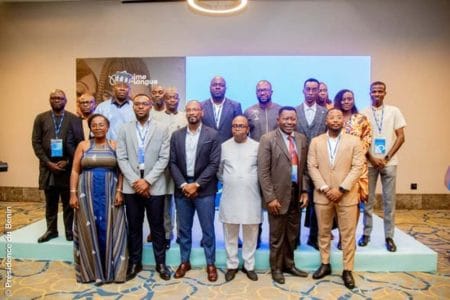Esther Kimani isn’t just growing crops – she’s growing a revolution. At 29, she’s the founder and fearless force behind Farmer Lifeline Technologies, an agritech startup that’s helping smallholder farmers across Africa fight back against pests, diseases, and crushing crop losses. Her secret weapon? Artificial intelligence. Her mission? Making sure no farmer is left behind – not in yield, not in tech, and definitely not in hope.
The world is catching on. Kimani recently won the Cisco Youth Leadership Award – a big deal in global impact circles – and it’s no surprise why. She’s showing what happens when lived experience meets cutting-edge innovation.
“Esther’s agritech solutions are making big strides in eradicating world hunger,” says Cisco’s Fran Katsoudas. “It’s a ripple effect that’s lifting entire communities.”
From a Kenyan Village to the Frontlines of Innovation
Kimani’s story starts on the slopes of Kenya’s Aberdare Mountains, where she grew up in a farming family – the oldest of four girls. Crop pests weren’t just an inconvenience; they were the reason school fees didn’t get paid and doctor visits were skipped.
Determined to change that narrative, she became the first girl from her village to attend the University of Eldoret, where she studied computer science. That’s when the lightbulb moment happened.
“I knew I was leaving home to change home,” she says. And she did.
AI That Speaks Farmers’ Language
Kimani saw that traditional pest control options – like $60 agronomist visits or $100 drone scans – were out of reach for most rural farmers. So she flipped the script.
Her solution? An AI-powered camera installed right on the farm, scanning crops in real time. When it detects trouble, the farmer gets a simple SMS alert. Diagnosis. Treatment. Weather forecasts. All for $3 a month. No app, no jargon, no Wi-Fi needed.
“We’ve made AI as easy as reading a text,” Kimani says. “Because that’s what our farmers do every day.”
The results? A 36%+ increase in yields for 78% of users. That’s not just improvement – it’s transformation.
Tech That Includes, Especially Women
Kimani’s also making sure her tech doesn’t widen the gender gap. In rural areas, men typically have smartphones while women rely on basic feature phones.
“We chose SMS because it works for everyone — especially women,” she explains. “We’re not leaving half the farmers behind.”
Her model is already working across five African countries and has its eyes on Tanzania, Uganda, Rwanda, Nigeria, and Zambia next. The goal? 1 million farmers supported by 2030.
Awards, Mentors, and Big Dreams
Kimani’s innovation has earned her more than just headlines. Awards from the UN FAO, Waislitz Global Citizen, and now Cisco have helped open doors and attract key partnerships with NGOs and farming cooperatives.
But for her, the real fuel has been mentorship.
“Young founders in tech need more than capital — we need people who believe in us,” she says. “That belief changes everything.”
By 2030, she wants to see smallholder farmers thriving, not just surviving – sending kids to school, affording healthcare, and building stable futures.
Her Message to Young Africans? Go Big.
“Dare to dream — and dream big,” Kimani says. “I went from a village farm to global stages. If I can do it, so can you.”
Esther Kimani isn’t just leading an agritech startup. She’s showing us what purpose-driven innovation looks like – rooted in community, powered by tech, and delivered one SMS at a time.






